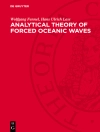This book discusses in detail the science and morphology of powerful hurricane detection systems. It broadly addresses new approaches to monitoring hazards using freely available images from the European Space Agency’s (ESA’s) Sentinel-1 SAR satellite and benchmarks a new interdisciplinary field at the interface between oceanography, meteorology and remote sensing. Following the launch of the first European Space Agency (ESA) operational synthetic aperture radar satellite, Sentinel-1, in 2014, synthetic aperture radar (SAR) data has been freely available on the Internet hub in real-time. This advance allows weather forecasters to view hurricanes in fine detail for the first time. As a result, the number of synthetic aperture radar research scientists working in this field is set to grow exponentially in the next decade; the book is a valuable resource for this large and budding audience.
Table of Content
Hurricane Precipitation Observed by SAR.- Tropical Cyclone Multiscale Wind Features from Spaceborne
Synthetic Aperture Radar.- Observations of Typhoon Eye on Ocean Surface Using SAR and
Other Satellite Sensors.- Tropical Cyclone Wind Field Reconstruction from SAR and
Analytical Model.- High Wind Speed Retrieval from Multi-Polarization SAR.- Observation of Sea Surface Wind and Wave in X-band Terra SAR-X and Tan DEM-X over Hurricane Sandy.- Hurricane Eye Morphology from Spaceborne SAR Images Using Morphological Analysis.- Tropical Cyclone Center Location in SAR Images Based on Feature
Learning and Visual Saliency.- Observing Typhoons from Satellite-Derived Images.- Coupled Nature of Hurricane Wind and Wave Properties for Ocean Remote Sensing of Hurricane Wind Speed.- Hurricane Winds Retrieval from C Band co-Pol SAR.- Sea-Level Pressure Retrieval From SAR Images of Tropical Cyclones.- Electromagnetic Scattering of Rainfall and Tropical Cyclones over Ocean.- Synthetic Aperture Radar Observations of Extreme Hurricane Wind and Rain.- Detecting the Effects of Hurricanes on Oil Infrastructure (Damage and Oil Spills) Using Synthetic Aperture Radar (SAR) Imagery.- Tropical Cyclone Eye Morphology and Extratropical-Cyclone-Forced Mountain Lee Waves on SAR Imagery.
About the author
Professor Xiaofeng Li has been with the NOAA/National Environmental Satellite, Data, and Information Service (NESDIS), College Park, MD, USA since 1997. His research interests include remote sensing observation and theoretical/numerical model studies of various types of oceanic and atmospheric phenomena, image processing, ocean surface oil spill and target detection with multipolarization SAR, and sea surface temperature algorithms development. He is also involved in developing many operational satellite ocean remote sensing products at NESDIS. Prof. Li also serves as the vice Chair: Washington Chapter of IEEE/Geoscience and Remote Sensing Society He is a senior Member of IEEE Geoscience and Remote Sensing society and IEEE Oceanic Engineering society, a member of American Geophysical Union (AGU) and American Meteorological Society (AMS). He also serves as Editors for several international journals, e.g. International Journal of Remote Sensing, International Journal of Digital Earth. He is also invited as guest professor at three universities in the US and 10 institutions in China.












